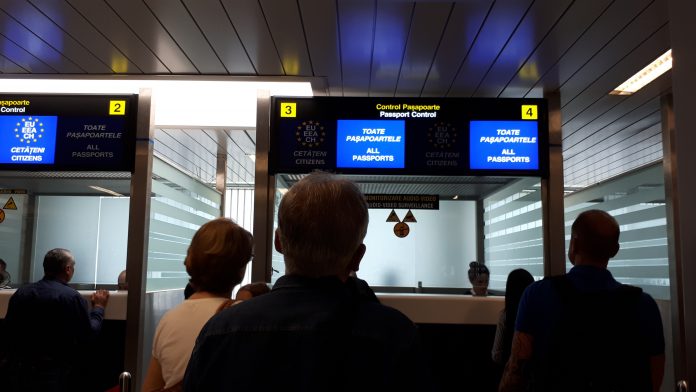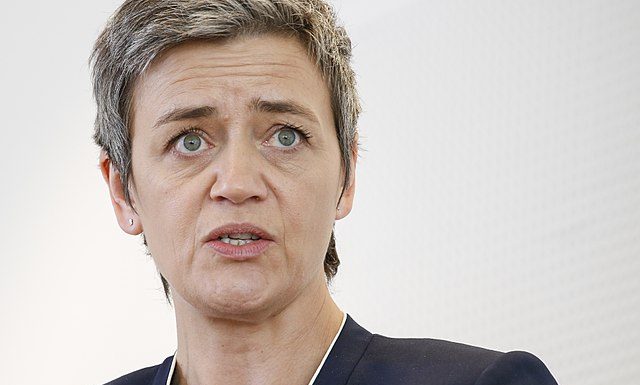
By Bill Wirtz (freelance journalist from Luxembourg and Senior Policy Analyst at the Consumer Choice Center)
In Brussels, the European Commission and Member States have been ironing out the details for the so-called EU “digital green certificate”, a stylish new name for what is essentially an EU vaccine passport. In essence, the scheme is supposed to replace COVID-19 testing whereby travelers are now required to present a negative test upon arrival or before their departure.
Importantly, the European Commission foresees that member states can also use this new certificate for purposes other than international travel. In other words, it could become mandatory to present it when entering a grocery store, a concert venue, or a park.
As a freelance journalist for one of Luxembourg’s newspapers, I interviewed my country’s health minister, Paulette Lenert, back in January. She was adamant about how she saw no need for a vaccine passport and would probably oppose a rule that would require Luxembourgish citizens to prove their medical status at a border. She also stressed that such an arrangement would only deepen the controversies about vaccines.
Nevertheless, a few months later, the EU is on the verge of rolling out the proposal, as the Portuguese EU presidency has promised to deliver a revised draft by April 14. Diplomats still do not expect the scheme to be “realistically” implemented before July, given that “the interoperability of the project is a difficult task.” But it seems nobody is fundamentally questioning the idea any more.
EU Member states really seem to be caving to the demands of member states like Greece, which has insisted on the passport in a bid to support its tourism industry. Athens seems unconcerned with the larger implications of such an electronic EU vaccine passport, which are far-reaching.
From a privacy perspective, it is concerning that the EU vaccine passport exposes sensitive health information – concerning vaccination, test results and even medical information on being recovered from Covid – to hackers, domestic and from foreign governments. In this regard, the “Global Privacy Assembly” has stressed that privacy should be at the forefront of considerations, suggesting, amongst others that “sunset clauses should be built into the design of such schemes, foreseeing permanent deletion of such data or databases, recognising that the routine processing of COVID 19 health information at borders may become unnecessary once the pandemic ends.”
The International Air Transport Association already introduced its own “travel pass”, at the end of 2020. Even if it claims that everything is being done with “decentralized technology”, details remain scarce, which is not reassuring.
The European Commission has claimed the EU system would only require “essential information”, which would include vaccine or test data as well as a unique identifier for the certificate.
In its proposal, it also foresees a decentralized system, noting:
“The “Digital Green Certificate” framework should not require the setting up and maintenance of a database at EU level, but should allow for the decentralised verification of digitally signed interoperable certificates.”
Data leaks are unfortunately quite common. Only in January, a data breach at the European Medicines Agency led to hackers posting confidential documents regarding Covid-19 medicines and vaccines on the internet.
Supposedly, a decentralized setup should go some way to deal with the danger, but if all kinds of sensitive information is being stored on people’s phones, people will need to employ a greater level of care when using their devices. From past experience, it can therefore be suspected that we will very quickly hear of stories of abuse of information, as well as significant data leaks.
Beyond the technical aspects of the digital vaccine passport, we should also look at this from the point of view of equity.
Much of the developing world is miles away from getting anywhere near access to a COVID-19 vaccine. To impose such an insurmountable new hurdle to people from Asia or Africa, on top of the existing visa requirements, is simply cruel, a case which I also made in an appearance on Consumer Choice Radio and in a piece for The Dispatch.
Furthermore, we should note that many European countries have been offering free COVID-19 tests, something which is likely to stop, as vaccinations are being rolled out. This means that travelers will need to pay themselves for the required tests, something which can be rather expensive for many people.
Liberal democracies should simply refrain from the intrusive measure of a “vaccine passport”. Governments should not be able to request our health data, whether we are entering a pub or the passport desk at the airport. Indeed, this is what separates free countries from the likes of China and other Asian nations, even if their management of Covid was superior. To be safe from this virus should not be the only standard. To be able to travel unmolested by state agents and to be able to refuse to disclose private medical information are fundamental rights.
On top of that, we need to be very careful about the slippery slope which an EU vaccine passport would set. As they say, nothing is as permanent as a temporary government measure. One needs to be skeptical that a vaccine passport will remain temporary. On the contrary, it very much looks like this may become a long-term measure, whereby an increasing amount of personal information is being gathered under the pretext of public health and security.
Also important is to consider the legitimacy which an EU vaccine passport provides to authoritarian countries. If the EU does it, on what ground can it still blame the likes of Russia, Belarus, or Northern African regimes for recording health information for indefinite amounts of time? As Adam Mazik argues in The Conservative, a lot of civil rights-violating laws in countries such as Russia have often been modelled on European equivalents.
The EU vaccine passport may also undermine the passport-free Schengen Area over the longer term. Airlines might be able to check the digital certificate during the boarding process, with limited hassle, but if EU member states are serious about enforcing travel rules, no boat transfer, rail trip, or border crossing by car can be exempt from EU vaccine passport checks. That is unless it would be done at the level of the Schengen area, but the last twelve months can serve as evidence how unwilling Schengen countries are to coordinate health policies.
On top of all of this, the question remains whether law enforcement will receive the ability to randomly check the EU vaccine passport in public, i.e. by stopping people in the streets and requesting them to show their certificate. Do we really want to create a certificate that can degenerate in this way? One petition against the EU’s vaccine certificate already received more than 200.000 online signatures. More opposition can be expected.
The EU vaccine passport truly signifies an increase in the powers of the state which should make everyone valuing personal liberty and privacy shudder. It is high time to stop the bureaucratic process which is currently rolling this out.
Disclaimer: www.BrusselsReport.eu will under no circumstance be held legally responsible or liable for the content of any article appearing on the website, as only the author of an article is legally responsible for that, also in accordance with the terms of use.












